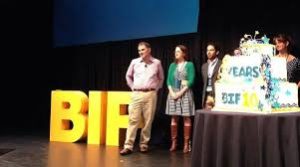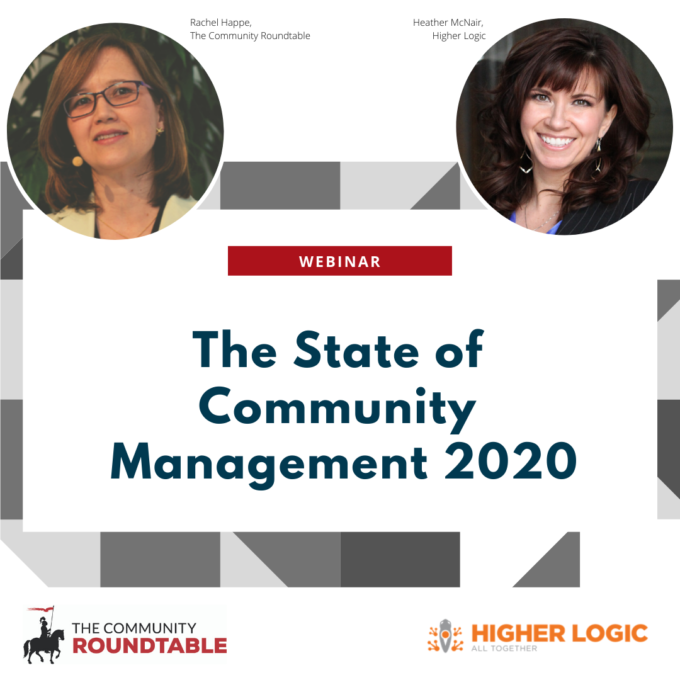
The State of Community Management 2020 is the 11th edition of The State of Community Management research, the longest-running, and most comprehensive industry report for online community professionals. This webinar will explore top trends and key findings from the 2020 report.This year, online communities and digital engagement are taking on dramatic new relevance. We have made considerable progress in translating the generative business model of communities into financial benchmarks, which are critical for organizations as they consider using community approaches to transform their organizations. We can now communicate the generative creation of value in financial terms.This year’s three key findings:
- Advanced Communities Create Generative Value
- External Communities Elevate the Customer Experience
- Internal Communities Reveal Untapped Potential
This year we have added more comparison segments, which have revealed new insights and allow us to report how external, customer community programs are differentiating themselves and maturing more quickly than internal, employee community programs.
Note: Members of TheCR Network can watch the archive here.
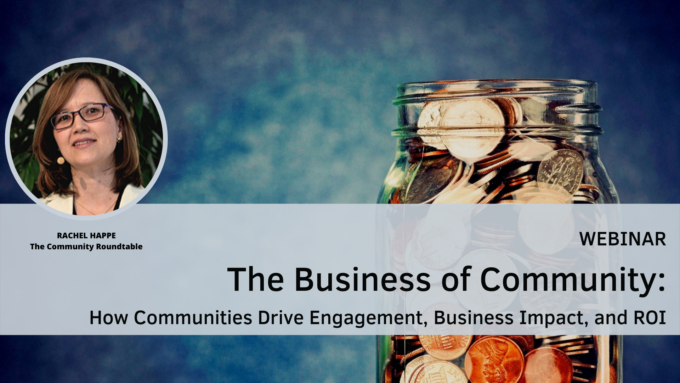
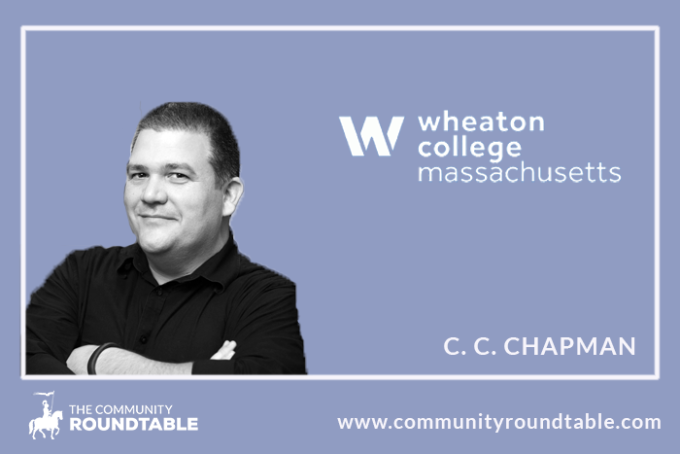
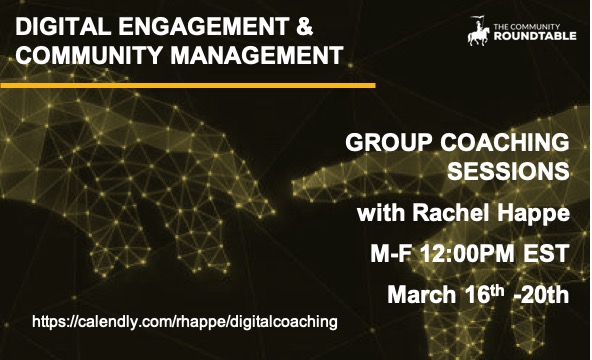
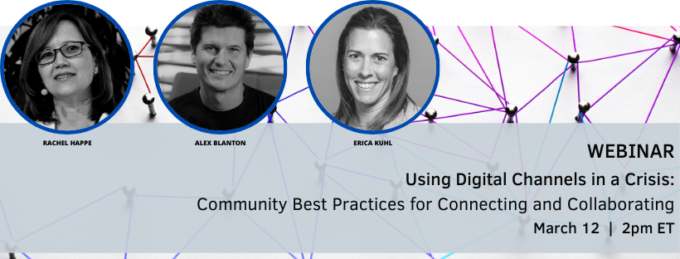
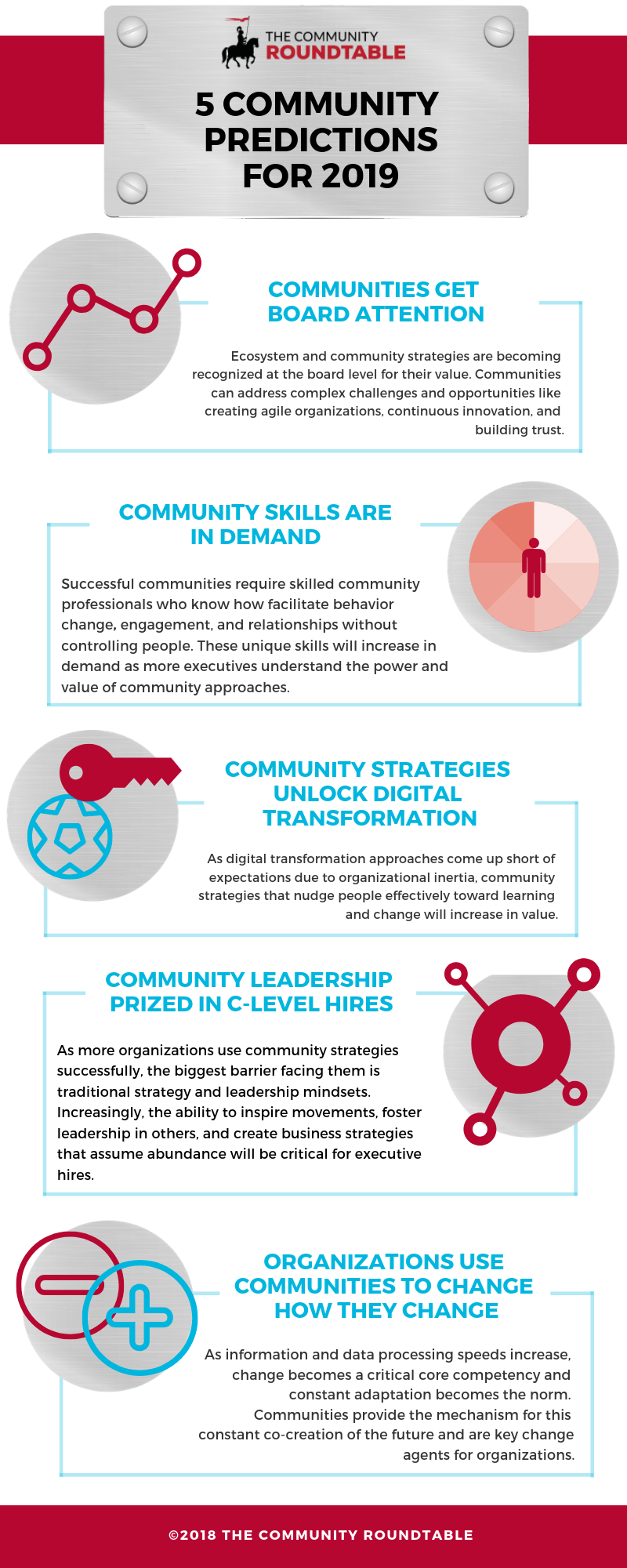
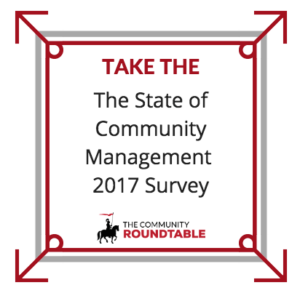 Eight years. The Community Roundtable has been doing its annual research on the landscape of community management for close to a decade.
Eight years. The Community Roundtable has been doing its annual research on the landscape of community management for close to a decade.


